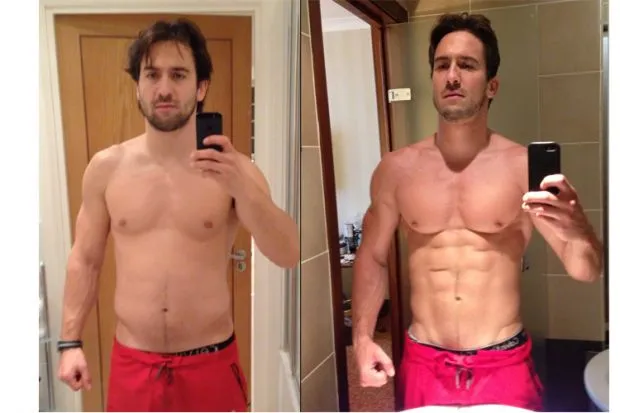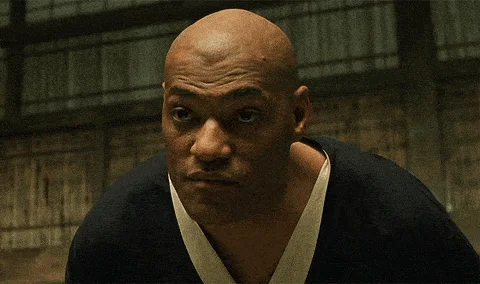Take Note of This Guide Before Investing in a Personal Trainer!
This all-encompassing guide is designed to help you differentiate between a subpar personal trainer and the best personal trainer Toronto.
Trust us, having the right trainer can make a significant difference in your fitness journey.
Few things are as disheartening as dedicating time and money for over six months with a trainer, only to witness minimal progress on the scale.
Through my seven years of training, I’ve encountered both exceptional and subpar trainers. I’ve maintained a long-standing relationship with the same online personal trainer since 2014. Additionally, we’ve assembled a team of 10 highly skilled personal trainers.
In essence, we possess extensive experience and expertise and are dedicated to providing you with candid advice.
Regardless of whether you’re contemplating our 1-on-1 Online Training Program, this guide will equip you with invaluable insights.
In this guide, we will explore the positives, the negatives, and the less favorable aspects of personal trainers, whether they’re working in-person or online:
- What do you need from a personal trainer?
- How to find an excellent personal trainer.
- What are the signs of a bad personal trainer?
- What certifications should a personal trainer have?
- How much does a personal trainer cost?
- Pros and cons of hiring an online personal trainer.
- How to hire a personal trainer: next steps.
What do you need from a personal trainer
As Coach Matt explains in the video above, the first question you need to ask when hiring a personal trainer: do they match up with your goals?
And yep, that means we’re going to have to pick some goals in the first place!
So start by picking your goals and then determine if the trainer you’re paired up with is the right fit for you. Like dating, you can meet somebody who’s amazing but not right for you.
If somebody is a competitive marathon runner, they might not be a great powerlifting coach, and vice versa.
So, start with your goals for finding a personal trainer:
- Are you trying to lose 300 pounds? 20 pounds? Get to 10% body fat?
- Are you trying to get stronger or hold your first handstand?
- Do you want to become a competitive powerlifter?
- Are you looking to run your first 5k?
- Do you just want to get in shape, feel better, and enjoy exercise?
These goals will largely determine the type of trainer you’re looking for.
MISTAKE #1: Not making sure your trainer has expertise in the area you want to train in.
Expertise in one area does not necessarily make them a good fit in another!
After that, you’ll want to think about what you NEED from your personal trainer:
- Are you looking for a powerlifting coach to show you the basics (squat, deadlift, bench) so your form is right? Just a few sessions up front and a few later down the line to confirm you’re on the right path might suffice.
- Are you new to working out or looking to kick start your first 2 months of training with 2 sessions per week to keep you disciplined?
- What type of person are you? Do you need more hands-on guidance throughout your workouts, or more space to take ownership and thrive on your own? Do you need somebody who will cheer you on or do you need tough love from somebody to call you on your bullshit?
Once you set proper expectations with what you want and how long you need a trainer for, then you can pick out one that hopefully will work for you.
How to find a good personal trainer

After identifying a potential trainer you’re interested in working with, the next crucial step is to engage in a thorough conversation.
COMMON MISTAKE #2: Accepting your trainer’s guidance without ensuring compatibility!
They MUST listen attentively, taking in your complete story.
They MUST inquire about any prior injuries or exercise experience you may have had. Understanding your injuries or limitations enables them to design an effective program tailored to you.
They MUST discuss your nutritional habits. Failure to do so would be a waste of your time.
They MUST practice what they advocate for. While not necessitating Olympic-level fitness, they should embody a healthy lifestyle.
They MUST inform you about their expertise and how they can assist you. Sharing past client success stories or presenting their credentials and track record of achievements is important.
They MUST establish realistic expectations. You won’t achieve a chiseled physique in a month, but they can inform you that it may take several months to achieve fitness goals or develop the right habits.
These are the aspects to consider. Our focus in our personalized online coaching program centers around these points. We take joy in assisting individuals in a manner that aligns with their lifestyle, at a pace that suits them, all while making the process enjoyable.
What are the Signs of a bad personal trainer?
Beware the “entertainment exercise” trainers with a routine that isn’t catered to your goals.
MISTAKE #3: Thinking a workout is more effective because it’s confusing.
Many trainers just try to confuse you with needlessly complex movements, and put all their clients through roughly the same cookie-cutter plan.
Why? because they know it makes them look knowledgeable without actually needing to do something effectively:
“Now balance on this bosu ball while doing these dumbbell squat lunge curls and standing on one foot with your tongue out! Muscle confusion!
I hope you saved some energy for the row machine.”

Tough workouts are great, but remember that while it’s easy to get someone tired (“go do 100 burpees!”), it’s harder to help someone slowly improve and build momentum.
Sure, it might elevate your heart rate and tire you out, but if it’s not building towards your goals in a way that you couldn’t do at home, what are you paying for?
They might also have just obtained a basic certification and stopped their education there, relying on ‘conventional wisdom’ rather than doing the research and building the experience.
If your trainer says any of the following phrases, run for the high hills:
- “Yeah you don’t want to squat too low – it’s bad for your knees.”
- “Use this machine; it’s safer for you than free weights” (unless you have an injury)
- “Yes, you should be using mostly your back. That’s why it’s called the back squat”
- “These (ab) exercise will burn fat from your stomach in no time” (You can’t spot reduce fat.)
I have overheard all of these sound bites from real trainers in real gyms, and it made me weep like the Native American in the 1970s pollution ad:
Your trainer should be results-focused, not focused on scheduling you a new session and keeping you around.
I often see clients working with trainers for months and months and that client never looks any different.
The trainer is just interested in cashing another check.
Remember, your personal trainer works for YOU: Don’t let them build a program that doesn’t actually fit your needs!.
Do they adjust your workout to take care of any pre-existing injuries you may have, or do they just give you a cookie cutter workout?
Are they encouraging or helping you succeed in the way you want to be encouraged, or are they scrolling through Instagram models on their phones while you’re doing your sets?
Are they putting in the time so they can see you get results, or are they putting in the time so they can check the box and collect your money?
You’re paying money for this person’s expertise and attention – it’s not too much to ask to find somebody who takes those things seriously.
What certifications should a personal trainer have?

A wide array of certifications and credibility indicators are available for personal trainers.
The traditional route, such as obtaining a degree in exercise science or kinesiology, can signify a trainer’s understanding of the human body. However, it may reflect something other than their practical experience in coaching real-world clients.
Here are six well-known personal trainer certifications:
- NSCA: National Strength and Conditioning Association
- ACSM: American College of Sports Medicine
- NASM: National Academy of Sports Medicine
- ACE: American Council on Exercise
- NPTI: National Personal Training Institute
- CrossFit
NSCA and NASM provide a comprehensive review of the pros and cons from a trainer’s viewpoint, offering valuable insights for clients. Feel free to explore these to understand the basis of your trainer’s certification better.
CrossFit certifications can be acquired over a single weekend. While possessing a CrossFit certification does not necessarily indicate a trainer’s incompetence (as there are many exceptional CrossFit coaches), it also does not guarantee excellence.
NPTI offers a certification achieved through formal education in personal training, unlike a single class or exam. While no certification can guarantee absolute excellence, trainers with NPTI certifications deserve consideration.
IMPORTANT NOTE: Many exceptional trainers need certification, while others with elite credentials may not excel in training.
MISTAKE #4: We need to be more accepting or dismissing a trainer based solely on their credentials.
Certifications are a good starting point but should not be the sole determinant.
One of the most critical attributes to look for in a trainer is not just a credential or certification but genuine experience and a passion for helping you achieve your goals.
For example:
- Trying to lose a significant amount of weight? Ask for success stories from the trainer featuring clients with similar weight loss objectives.
- In our opinion, finding a trainer with a proven track record and experience in the area aligned with your goals is the most valuable step towards ensuring quality.
Are you interested in powerlifting or Olympic lifting? Look for someone who has successfully competed in these domains or coaches athletes who compete in them! The certification is merely a starting point.
Trainers come at a cost, but the benefits they offer are invaluable.
Remember, you’re not just paying for their time spent with you. You’re investing in their years devoted to learning, training, and coaching.
The years of dedication and experience behind the certification give value to their time. Hence, expect the cost of a trainer to be considerably more than a basic gym membership.
How much does a personal trainer cost? Are Personal Trainers Worth it?
The cost of a personal trainer can vary dramatically depending on:
- Where you live (in an expensive city, small town, etc.).
- The quantity and duration of your training sessions.
- What kind of training you are looking for.
- But you want specifics.
The average North American trainer charges $55 for an hour session.
In-Home Personal Training.
If you don’t want to head to the gym, you can actually have a personal trainer come to your home. The cost on this could be all over the place, but a rough average would be about $65 for an hour session.
Different trainers will have different qualifications and expertise, leading to vastly different training experiences.
This can be really important.
MISTAKE #5: Thinking “more expensive” automatically means “better results.”
Cost is not the right metric. VALUE is the right metric!
Depending on your goals and the results you’re after:
- $30 per session might be overpaying for a crap trainer who gives you a generic workout and doesn’t care about you.
- $100 per session might be a STEAL if it’s an amazing trainer that gets to know your life and your personality, motivates you in the way you need to be motivated, and helps you get past a plateau when you stall.
That’s why remembering your “get in shape” goals is critical when buying a personal trainer.
If you’re looking to do 5 sessions to improve your powerlifting technique, that’s different than hiring a trainer to be with you in person 3x a week to get you to the gym.
HOW TO THINK ABOUT HIRING A TRAINER:
- You’re not just paying for an hour of somebody’s time.
- You’re paying for their years of experience, schooling, training, and expertise.
- You’re paying to outsource ALL of your fitness questions to somebody who knows what they’re doing.
- Somebody who gives you the confidence you’re training correctly.
So instead of “I am paying this trainer for 1 hour, this is too expensive,” what you’re really paying for is confidence, momentum, and (hopefully) results.
How does an in-person trainer compare to our online coaching program?
- Our pricing comes in at a less-expensive price than 4 sessions per month with a trainer.
- In addition to building you a workout program for the month, we also help you with your nutrition, mindset, and goals, and answer all the questions you have.
There are very real pros and cons to hiring an online personal trainer, so make sure you read that next section.
So a trainer can be AMAZING and worth every penny, IF you have the right one who also takes an active role in your nutrition.
After all, workouts only make up 1-3 hours per week.
Should i hire an online personal trainer? What are the pros and cons of an online personal trainer?

Disclaimer: I acknowledge a slight bias in this area, but I’ll provide an impartial evaluation of the pros and cons of online training:
As mentioned earlier, I’ve been utilizing an online trainer since 2014, and this experience allowed me to prove a skeptic wrong and shed 22 pounds in just six months, all while significantly improving my strength!
Here are the Advantages of Online Personal Training:
- Flexibility to suit your schedule: When you have an online personal coach, you can work out at a time and place that suits you best – your coach designs the workout plan in advance, enabling you to integrate it into your daily routine seamlessly. In contrast, with a traditional coach, you’re subject to their busy schedule. Conflicts arise if their only available time is Friday morning at 8 a.m., and you’re not a morning person.
- Consistent global accountability: I’ve borrowed this phrase from a coaching client named Jeff (whose success story is remarkable). Regardless of your location worldwide, your online trainer is with you, so accountability is constant. If you need to travel for work, your online coach can strategize and develop a specialized travel regimen. If a position requires you to move, no worries—your coach will continue to be there for you.
- Dietary advice: When working with most traditional personal trainers, your interaction is limited to scheduled visits during which they assist you with your workout, and that’s about it. However, with an online personal trainer, you’re connected whenever you have internet access. Most online coaching programs focus on a crucial aspect: guiding you to eat a healthier diet! Essentially, it addresses everything outside the gym during the 23 hours.
- More cost-efficient: In-person personal trainers tend to be expensive, primarily if you work out with them two or three times a week. This is because while your trainer works with you, they can only assist you. On the other hand, working with an online coach who doesn’t provide one-on-one training in the gym allows for more cost-effective guidance. When you consider their availability through chat and their assistance with habits and nutrition, finding a coach that aligns with your personality could be a life-changing experience.
- The only viable option: Given the numerous gym closures due to the pandemic, you may not have many choices. Here’s our guide to maintaining fitness (while indoors) if you must train from home. In comparing online coaches to traditional coaches, I’ll present the drawbacks, assuming you can choose between an exceptional online coach and an outstanding in-person coach.
While an online coach can track your activity and inquire about any missed check-ins on your app, this comes after the fact compared to the immediacy of an in-person coach being stood up.
There are numerous factors to consider when comparing in-person training with an online personal trainer.
I wouldn’t definitively state that one format is superior to the other. It genuinely depends on your goals and individual circumstances.
BASED ON MY PERSONAL EXPERIENCE: I’ve been under the guidance of an online trainer since 2014, and it has genuinely transformed my life. I had specific goals that had eluded me despite a DECADE of striving, and it required an excellent coach to devise the right approach. That’s why I went from Steve Rogers to Captain America. I’m not aiming to set any powerlifting records, but I’m noticeably healthier, happier, and progressively stronger each month. I take immense pride in that.
For those unable to afford a top-tier professional coach for every session, having an online coach to structure your training and offer dietary guidance is a compelling alternative.
How to hire a personal trainer
HERE’S MY ADVICE: Give your new personal trainer 5 sessions before making a decision that things aren’t working out (sessions are often sold at a discount in a package).
The first session is often exploratory, explanatory, and introductory, and the trainer needs to test your limits and movements to build upon that.
This isn’t a “get fit quick” strategy, but rather one that could take months and months for you to find the right person to aid you on your journey.
Don’t expect miracles in a day!
A few words of wisdom if you do hire a trainer:
DO NOT USE YOUR TRAINER AS AN EXCUSE: Too many people will hire up a trainer and give no effort in the gym or the kitchen.
Then, when they fail to see results they can turn to their friends and say “man, my trainer is terrible, THAT’S why I’m not losing weight/getting stronger/etc.”
This happens so much more often than you’d think. A trainer is a guide, like Morpheus.

You have to take the pill and walk through the door yourself.
MAKE CRITICISM CONSTRUCTIVE CRITICISM: Often when the trainer asks them to do something (walk every day, throw away junk food, eat a vegetable), the client/trainee comes back with 1,001 reasons why they can’t do that.
No compromise or discussion of possible solutions. This stinks.
Instead of saying “no,” offer an alternative solution and negotiate a plan: “I don’t really like broccoli, do you have a way to make vegetables taste better?”
In other words, don’t look for problems, look for solutions.
IF YOU ENJOY WORKING WITH YOUR TRAINER: Let them know and continue working with them.
The more information you can give them on your progress, the easier it will be for them to alter your program as you go on.
IF YOU DON’T ENJOY WORKING WITH YOUR TRAINER: That’s okay too. Not all relationships end in marriages.
Some first dates suck, and some trainers aren’t what you need.
I think you can be honest with them and let them know that it’s not a good fit and you will not be continuing to work with them.
Good trainers at this point will ask what they could have done better.
Trainers who are simply after your money may guilt trip you or beg you to stick around. Try somebody new and keep the search going.
REMEMBER: this is a lifelong quest, and you’re on the hunt for a great guide to help you on your journey.
They won’t do the work for you, and they can’t work miracles.
Have proper expectations, do what you’re told, and this could be the best investment you’ll make in your entire life!
Trainers in the Rebellion, what did I miss?
Those who have had experience working with Trainers, any wisdom to share from your experience?
One final note: Going to a gym is intimidating, especially if you’re starting out.
If you are in a location where there aren’t any great trainers, you don’t have access to a gym, or you’re just not ready to work with somebody in person, consider checking out our Online Coaching Program!

